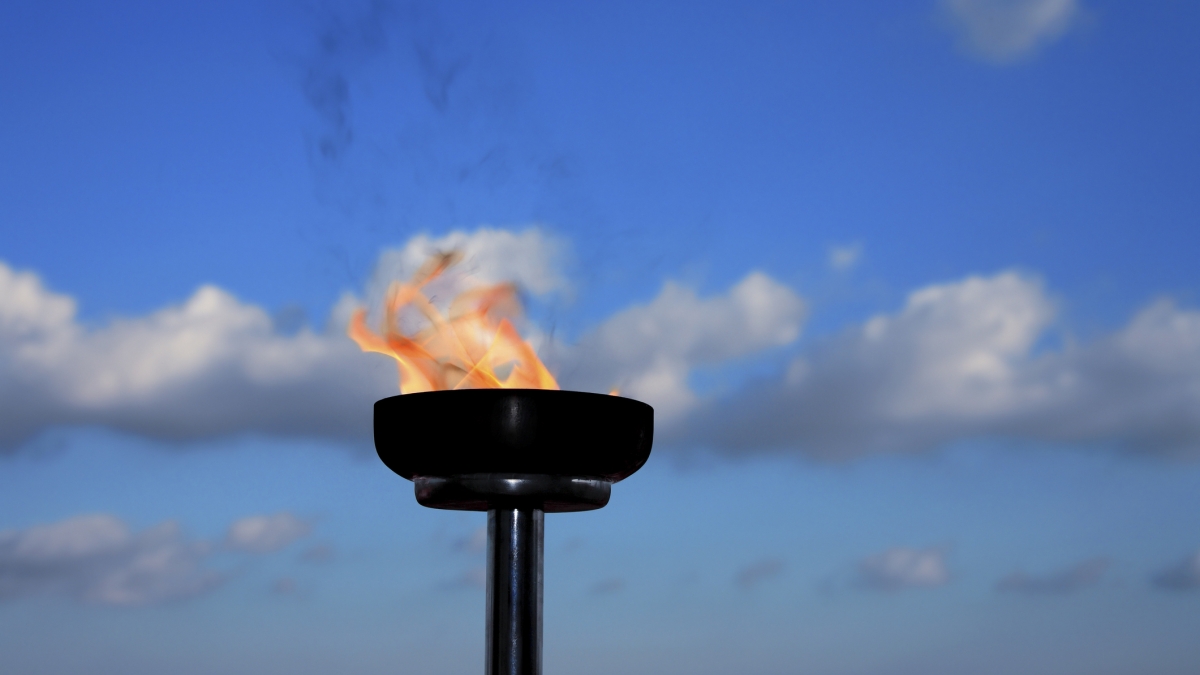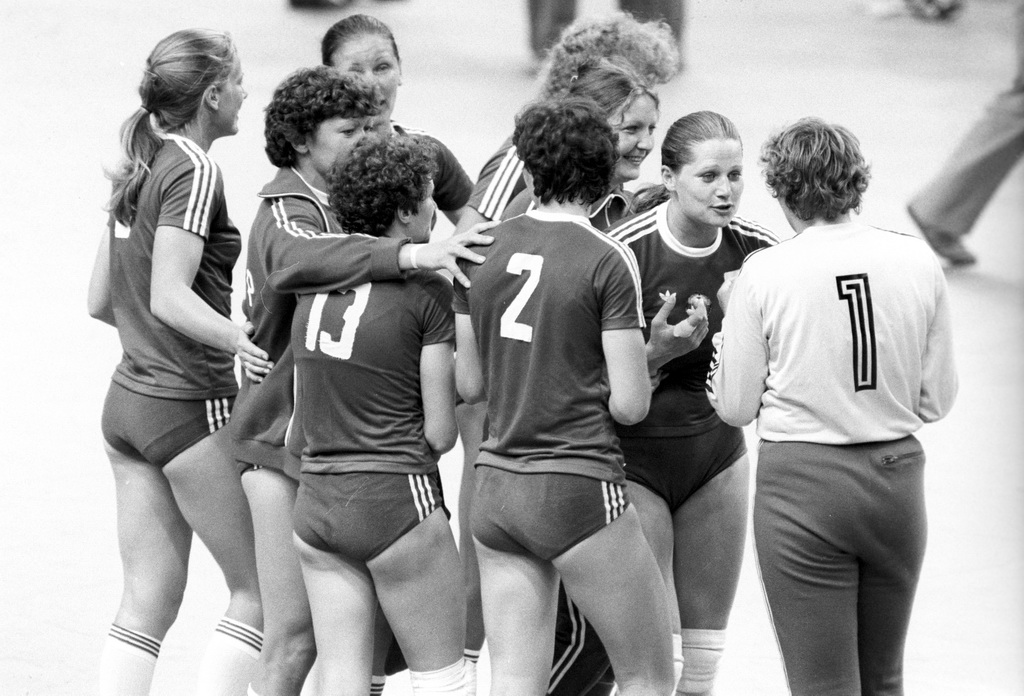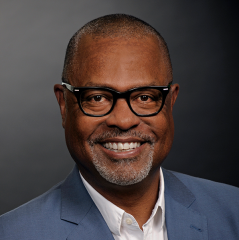Starting this week, more than 7,000 hours of coverage of the Summer Olympic Games in Tokyo will be broadcast on two networks and various streaming platforms. The NBC network paid nearly $8 billion for the rights to show one of the premier sporting events in the world.
Gone are the days when fans could catch only a few hours of tape-delayed results every evening.
Ken Shropshire, CEO of the Global Sport Institute at Arizona State University, has long been involved with the Olympics, not only as a fan but also as part of the Games. He was a member of the Los Angeles Olympic Organizing Committee from 1982–84, involved in negotiating the sponsor and licensing agreements for those Games, and he managed the Olympic boxing competition.
Shropshire, who also is the Adidas Distinguished Professor of Global Sport, answered some questions from ASU News about the changing nature of the Olympics:
Question: In your years of watching the Olympics, do you think the coverage by U.S. media has become less American-centric and more global?
Answer: In my youth, in the 1960s, the coverage was always the USA versus someone else, and especially the U.S. versus the Soviet Union.
And the medal count was such an important part of the Games. As a kid, I would know the medal count.
We rarely worried about any other countries.
As the Soviet Union fell apart, I remember there was attempt to re-create that drama with the Soviet bloc countries, but that didn’t really work.
The women's handball team from the U.S.S.R. won the gold medal in the 1980 Olympics held in Moscow, which the United States boycotted. Ken Shropshire, CEO of ASU's Global Sport Institute, says that with the fall of the U.S. vs. the Soviet Union competition, the focus now is on storytelling. Photo from Wikimedia Commons.
It’s less country-competitive now. It’s largely the stories. ABC did it back in the day and NBC took it to the next level to have more than just competition filling the space.
To me, that’s the biggest difference. It went from country versus country to the U.S. versus the Soviet Union to the stories of the individual athletes.
Q: Why do you think viewers become so caught up in the success of obscure athletes that they’ll never think about again?
A: The Jamaican bobsled team really epitomized the idea of, “Do we have a story for you!”
And now editors send people out to find those stories.
In marketing, the transition to the individual-athlete endorsement came, oddly enough, with Michael Jordan – “Be like Mike.” Well, nobody could be like Mike. But you had Shaquille O’Neal and Kareem Abdul-Jabbar who were so big. Mike also was a big man, but maybe you could be like Mike if you had his shoes.
So you find those stories — the swimmer whose country doesn’t have a pool. And that person is humanized in a way that if they just showed the competition, you wouldn’t have that.
So instead of counting on a good match, or a close medal count, it’s, “I hope this person wins because that would be like me winning, or my cousin winning.”
Q: NBC’s ratings for the Summer Olympics have been declining. What factors do you think might be at play there?
A: Track and field was the big anchor Olympic sport, and track and field has declined in the U.S. There were the Penn Relays and West Coast Relays and they used to be so much larger than they are now. And there were so many more events that you looked forward to.
And back then, everybody knew who the U.S. 100-meter world record holder was, and certainly the world record holder, no matter where they were. If you did a “man on the street” interview now, nine out of 10 people would not know that.
I think there’s been a decline in global interest. I couldn’t name a single Russian runner now.
It justifies all the storytelling because you have to tell who all these people are.
And a lot has to do with how many channels we have on TV. There are so many options.
Before, programming like “The Wide World of Sports” on Saturdays would force you to watch track and field, especially this time of year. Now I can watch anything I want.
Q: The International Olympic Committee (IOC) has set guidelines for athletes protesting social justice issues at the Games. Gestures are allowed before competition but not during or on the podium. What do you think about that?
A: If the rules say you can do it, it’s not a protest.
Ken Shropshire, who was a member of the Los Angeles Olympic Organizing Committee for the 1984 Olympic Games, is the CEO of ASU's Global Sport Institute.
The United States Olympic Committee (USOC) is allowing quite a bit, and the IOC wants them to protest to varying degrees before their competition but not on the victory stand. It’s fascinating that the further they move the line, the further they will push the type of protest that will take place, as opposed to standing firm on what they believe should not happen.
It’s going to be very interesting to see what athletes do this year, at this moment in time when there’s been so much activism.
Athletes want to win, so we’ll see what kind of protest they want to initiate. It would be amazing if someone stopped a yard short of winning and pulled out a flag.
Q: There was a lot of coverage of Sha’Carri Richardson, who won the 100-meter race at the U.S. trials but lost her spot on the team when she tested positive for marijuana. What do you think of that situation in light of changing attitudes in society toward marijuana?
A: That’s been a tough one for me. My initial thought was, “Well, you knew the rules. That’s too bad.”
Then it was, “Well, she did it to deal with her biological mother’s death," and I had some degree of sympathy.
I thought, “Who can smoke a joint and run the fastest time in the world?” My amateur impression was that it was not going to help your performance.
But then as I read more, there’s this idea of being relaxed and reducing anxiety and that it can help your performance, although not like steroids.
With all that said, here’s what I wish could happen. The penalty should be imposed but not so severe that she will miss the Olympic Games.
The problem seems to be that there are so many precedents that they can’t override.
There has to be some form of punishment because it is a violation that can be interpreted as impacting her performance, so there is a rationale for it. Why not two weeks? Precedent would not allow that but there’s a first time for everything.
Marijuana was a relatively late addition to the (banned substance) list, added in 2004. If I’m the USOC and IOC and WADAWorld Anti-Doping Agency and USADAUnited States Anti-Doping Agency, I’m going to put out there clearly why it’s on the list. If the relaxation and stress release allow athletes to sleep more deeply, it will allow them to perform better the next day. Give us more on the “why” and there won’t be so many questions in the moment.
I don’t know how much (Richardson) knew about the “why.” Great athletes don’t want to win with some competitive advantage.
Q: What would you like to see more of (or less of) in Olympics coverage?
A: I am so old school that I just want to see the competition.
I will find myself Googling a name as it comes up but I’m not into the whole back story stuff. I want to see the race, the gymnastics competition, the basketball game.
It’s probably not commercially feasible to move back to less storytelling and more events. But now the Olympics are on so many channels that you can move yourself around.
Q: With controversy over the huge costs for the host country, do you think the Olympics are still relevant?
A: There is an intersection I always bring up to people that, in a sort of a negative way, ties the Olympics with the NCAA.
The modern Olympic era started in 1896 and the NCAA started in 1906.
In that overlap, in the beginning of the century, there were two enterprises, the Olympics and the NCAA. The conclusion of both is, “Let’s not pay labor to perform for us.” It was, “Let’s have these sporting enterprises where they’re all ‘amateurs.’"
If you can reduce the cost of labor down to zero, it will be a more profitable venture. There was no ancient Greek society in which athletes performed for the glory of sport alone.
And then there’s the question of, “Why are we doing this in Tokyo this year, in a pandemic?”
But having said all that, I am a fan. Like anything else in life, it can be so much better.
Top image of the Olympic flame by iStock/Getty Images.
More Law, journalism and politics
Can elections results be counted quickly yet reliably?
Election results that are released as quickly as the public demands but are reliable enough to earn wide acceptance may not always be possible.At least that's what a bipartisan panel of elections…
Spring break trip to Hawaiʻi provides insight into Indigenous law
A group of Arizona State University law students spent a week in Hawaiʻi for spring break. And while they did take in some of the sites, sounds and tastes of the tropical destination, the trip…

LA journalists and officials gather to connect and salute fire coverage
Recognition of Los Angeles-area media coverage of the region’s January wildfires was the primary message as hundreds gathered at ASU California Center Broadway for an annual convening of journalists…




